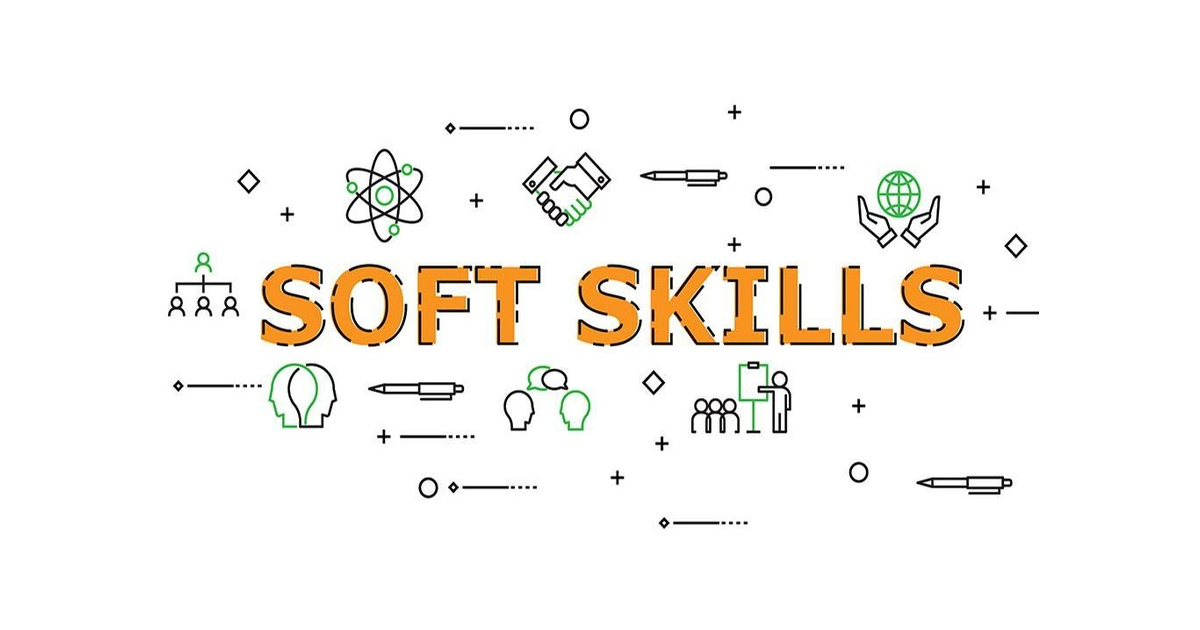Top Ten
Top 10 Soft Skills That Companies Need Most In 2020
Published
4 years agoon

Soft skills are a combination of people skills, social skills and communication skills. These skills are an essential part of a job description in recent years as more and more companies are recognizing the importance of having soft skills to complement hard skills. Skills generally imply a practical function but in the case of soft skills it could be interpreted as the ability to master hard to control actions.
Soft skills can improve a person’s chances of success while seeking a job opportunity as they let an individual stand out from the crowd. The list of soft skills which are in demand constantly keeps changing to complement the ever changing work landscape.
According to some of the famous job portals and professional networking platforms, these are the ten soft skills that companies desire in 2020.
1. Critical Thinking:
Critical thinking is the act of analyzing facts to understand a problem or topic thoroughly. Critical thinking often occurs in order of a few steps from identifying a problem or issue to developing a solution. As technology becomes increasingly complex by the day, this is a skill that would always be one of the most sought after by companies. For example an automobile mechanic would have to identify the problem of why a car is seemingly breaking down out of the blue. In order to identify the problem, the mechanic cannot dismantle the entire car to zero in on the root cause but instead he/she should be able to single out which part of the car is the problem stemming . The solution could be found out by analyzing the problem at hand, organizing and sorting the data at hand. Situations like these are where critical thinking abilities come to the fore.
2. Persuasion:
Persuasion is the ability to convince a teammate or a client to understand your point of view. The ability to persuade someone by being able to explain the ‘why’ would be a sign of a leadership quality in an individual. Therefore it is important to brush up on the ability to effectively communicate ideas to one’s colleagues.
3. Complex problem solving
Can two existing technologies be merged to come up with a single technology that does the same amount of work and improves efficiency? Is it possible to reduce the environmental impact by coming up with a recyclable alternative? These are the kind of scenarios where complex problem solving comes into the picture. To put it simply, it is the ability to analyse and make calculated decisions. A good example here would be how the Telangana state government worked with the Municipal Corporation Of Hyderabad to make use of the ongoing lockdown to carry out road repair works, drainage works, pending flyover construction works. The lack of public on the roads means work progresses at a faster rate thereby bringing down labor charges and equipment rental charges.
4. Collaboration
Collaboration is the process of two or more individuals or organisations working together to complete a project or a goal. Collaboration can bring out communication skills to the fore and a collaborative environment can be an extremely rewarding environment to hone different soft skills and leadership traits. Teams or individuals can achieve high functionality when working in a collaborative atmosphere.
5. Adaptability
Change is the only constant in life or a business. Being adaptable means being open to learning new skills and experiences, being able to change working styles or picking up job roles outside of your comfort zone. Organisations are always on the lookout for this trait. Being adaptable in your career or job role could mean you are able to respond quickly to changing ideas, responsibilities, expectations, trends, strategies and other processes at work.
ALSO READ: 10 Best Marketing Campaigns Done By Companies So Far
6. Emotional Intelligence
Emotional intelligence is the ability to understand and manage one’s emotions. Individuals with a high degree of emotional intelligence are always careful about how their emotions can affect other people. Emotional intelligence is a skill which can be learned by increasing self awareness, empathy, motivation and cultivating social skills. The more you manage to master these qualities, the higher the emotional intelligence. The ability to perceive, understand and respond to one’s own emotions or that of others is a trait which is in high demand.
7. People management
People management is the ability to assess and analyse the skills of individual persons and come up with a plan to manage all the skills available to make a high functioning team. This is a skill which lets an employer understand how empathetic is a candidate they are interviewing.
8. Negotiation
The art of negotiation is a highly sought after skill since ages. Having the ability to negotiate means an individual is able to reconcile differences diplomatically without compromising on the value of the output.
9. Helpful attitude or service orientation
Service orientation is the ability to anticipate, recognize and meet other people’s needs sometimes even before the needs are expressed. This is a highly sought after skill in the service and product based industries.
10. Cognitive Flexibility
Cognitive flexibility refers to the brain’s ability to transition from thinking about one concept to another. Someone who is cognitively flexible will be able to learn more quickly, and adapt and respond to new situations more effectively, which is why it’s so important in both educational settings and the workplace. It also means being able to adapt and modify communications depending on the situation or a person. Employers want to know you don’t just say the same thing, in the same way, to everyone. Having this skill will reaffirm an employers belief in a candidate that they can handle multiple scenarios or works at the same time without compromising on the quality
These are the skills that would enhance the chances of an individual to get noticed. The real question however is if you are rising up to the challenge and learn these skills. Let us know if there are any other important soft skills which need to be mentioned!
You may like
Top Ten
Top Ten Most Used Apps During The COVID-19 Lockdown
Published
3 years agoon
December 29, 2020
2020 would go down as an unusual year in this century as no one would have predicted the amount of change which would happen in such a short amount of time. While the year began normally like any other in the past, things began to go haywire when news about a new virus without a cure, began afflicting people in the Wuhan province in China. While the rest of the world thought the virus was an isolated incident, little did anyone guess the same virus would go on to cripple the world economy and medical infrastructure.
As governments across the world tried to race against time in a desperate effort to check the spread of the COVID-19 virus and declared nationwide lockdowns and curfews, consumer interests and dynamics underwent a drastic change. The lockdowns meant the crippling of various industries like transportation (Uber, Grab,) events industry (parties/music events,) hospitality (tourism) and logistics (airlines, hotels) to name a few. The people had to make do with what they had available in hand at their homes which is a smartphone, television, computer and an internet connection.
Social media platforms, fitness applications, gaming applications, video conferencing applications, news applications and grocery delivery applications saw a drastic increase in the downloads as well as usage. In this article we bring to you the top ten most used applications during the lockdown period. This list is compiled in no particular order and we also understand the list might not apply to everyone.
1) TikTok
TikTok ended up being a favourite pastime for millions of Indians as well as other nationalities. The viral app allows users to create short videos which can be shared across multiple platforms. Following the lockdowns Indians were at their creative best on TikTok till the viral app was banned by the government citing data security concerns.
2) Zoom
When the entire country was in lockdown it meant, workplaces and offices were closed. So how did organisations adapt to this change? They conducted meetings both internal and external on the video conferencing app called Zoom. The video conferencing was so widely used worldwide that its stock price grew by a whopping 170% by June 2020.
3) Houseparty
The fun app is a social networking application which lets users gather around in a virtual conference call in order to socialise. Houseparty had over 10 million downloads on Google Play Store and even more on Apple Store (Apple would not divulge the exact number.) Houseparty is currently the third most downloaded app on the iOS app store in the United States, behind Zoom and TikTok, and comes top in the United Kingdom during the lockdown.
4) Aarogya Setu
Aarogya Setu was an app designed by the Indian government to trace the COVID-19 virus and to analyse the spread of the virus. The app reached more than 100 million installs in 40 days since Prime Minister Narendra Modi made it mandatory for it to be installed on smartphones of Indians. The app also provided useful information about nearby hospitals, quarantine protocols and nearby COVID clusters and hotspots.
5) Instagram
The social networking application saw its screen time jump by almost an hour on average. Before the lockdown an individual used to spend on an average of 150 minutes on Instagram and Facebook. However, after one month of lockdown this jumped to 280 minutes a day according to a survey done by Business Today.
ALSO READ: Top Ten Long Standing Indian Brands
6) Twitter
Twitter, although a social media platform, is quite useful to learn about the latest news. Anything latest happening can be first found on Twitter and a quick hashtag will direct a user to the news. This was the reason why Twitter saw a lot of usage as people all over the world tried to stay on top of how the world is coping with the COVID-19 pandemic.
7) PUBG
PUBG was India’s most loved game during the lockdown. PUBG was played by a whopping twenty two lakh people in the month of June 2020 according to Hindustan Times. The battle royale game was enjoying a great run before the Indian Government banned it citing data security concerns. The game developers have since then opened a new corporate office in India as well as data centers and will re enter the Indian market again.
8) Whatsapp
Whatsapp is probably the most widely used texting platform in the world. Data from insights and consulting firm Kantar revealed a 40% increase in usage that grew from an initial 27% bump in the earlier days of the pandemic to 41% in the mid phase.
9) Netflix
Netflix usually enjoys a lot of screen time as people tune in to watch their favourite shows to while away their time. However, with the lockdown, people ended up being cooped up at homes and ended up binge watching a lot of content. According to a pan India study conducted by Velocity MR, Netflix saw a 65% rise in subscriptions.
10) Amazon Prime Video
Amazon Prime Video is a part of the Amazon Prime package which gives customers access to a ton of content and is also the biggest competitor to Netflix. According to a pan India study conducted by Velocity MR, Netflix saw a 67% rise in subscriptions.
Let us know if we missed out on any other applications which you think should be included in this list in the comments below!
Articles
5 Best HR Softwares for Startups And Small Businesses
Published
3 years agoon
December 28, 2020
Human resources are the personnel of a startup or small business and make up for one of most valuable assets for any organisation. Additionally startups often have a dedicated vertical or function which looks after human resources and various other functionalities which come with it like payroll, compliance, hiring, grievances and many more. Over the years, human resources has evolved from just one aspect of hiring to covering a broad spectrum of functions like learning and development, improving productivity and culture in an organisation. Therefore. human resources can become tedious with a lot of manual work involved in payrolls, interview scheduling, leaves and grievance management and therefore tend to take a lot of valuable time which could be used elsewhere. Therefore automating these processes can free up time as well as streamline the entire processes.
This is where a Human Resource Management System (HRMS) comes into play. HRMS refers to a platform which helps the HR department in planning, organising and controlling the workforce, recruitment, staffing, payroll, announcements, policy changes as well as functioning as a repository of important human resources information.
We have compiled a list of five best HRMS softwares for startups and small businesses. Read more to find out about them.
1) Gusto
Gusto HRMS offers customised services for each business. The HRMS platforms handles payroll, insurance, onboarding, employee finance tools and time tracking. Gusto is not just any simple HRMS tool, and what sets them apart is their financial advisors which let startups plan their insurances and taxes according to the budget they have in mind as well as a handy service which lets employees manage their finances better.
2) Namely
Namely is a HRMS provider who prides itself on being able to cater extensively to medium sized businesses by streamlining their HR processes. Namely believes in enabling startups and mid sized businesses to make data driven decisions in all aspects of their HR functions. Namely can cater to organisations who have employees from the range to fifty to a thousand.
3) Zoho People
Zoho People is an online Human Resource Management System designed to manage and access all your employee data from a centralized location. Zoho People does not need a separate software which needs to be installed and instead operates from the cloud. Zoho People provides modules for Employee self service, leave management, timesheets, attendance management and HR automation to name a few. Zoho People even offers a thirty day free trial in order to convince startups on their HRMS tool.
ALSO READ: 8 Best Free CRM Solutions For Startups
4) Bamboo HR
BambooHR is designed with small and medium sized businesses in mind. This HRMS tool offers modules for onboarding, hiring, compensation and a special module for culture. The culture module provides a new approach to performance management and the latest tools for measuring engagement and driving organisational behaviour. Bamboo HR also provides a free trial for startups and offers pricing depending on the size of an organisation.
5) Zenefits
Zenefits simplifies the process of curating, and providing great benefits to employees from comprehensive healthcare plans to useful perks like commuter benefits. Zenefits also provides a fourteen day free trial for startups with most of its features available in order to convince the organisation to opt for their HRMS.
This concludes the list of Best HRMS platforms available in the market for startups and medium sized businesses. Let us know if you are already using any of these HRMS tools or plan on using them in the future in the comments below.

A startup has to face many hurdles in the beginning due to bootstrapping, scalability and identifying market needs and fit for their product or service. Normally a startup has very little manpower in order to reduce their burnout rate (tracking the amount of monthly cash that a company spends before it starts generating its own income.) This means every member should don multiple hats and oversee multiple responsibilities. A good startup and its founders would make the wise decision to find processes which need automating and will make the shift so as to give them room to employ skills elsewhere. For example, if a startup relies on high volume sales from a regular customer, it makes sense to automate the process of invoicing and sales. Payroll and attendance can be linked and automated on a common dashboard. This is where customer relationship management (CRM) comes into the picture. To a layman, CRM is a tool or a strategy which helps businesses organise or strategically manage their customer data. Data was previously stored in databases on single computers but with the advent of the internet, digital marketing and cloud computing, accessing data has never been easier, thereby making life easier for startups.
A CRM platform or a tool in the current era is a software which connects different departments from front office to back office and organises notes/data, metrics, analytics into one smooth and cohesive ecosystem. Every user has direct access to real time client and internal data which lets startups add a personalized approach to clients. For example if a startup has recurring monthly salessale from an individual customer, the tool can generate an invoice monthly as well as allowing the freedom to include a gift on special occasions for recurring customers.
In this article we give a list of 8 best and free CRM solutions for startups looking to scale up.
1) Hubspot
Hubspot is a CRM tool which offers complete toolkits and integrations which lets startups increase leads, accelerate sales and streamline customer services. They have a CRM offering for sales, marketing, services and content management which lets startups choose what works best for them.
2) Zoho CRM
Zoho CRM tool lets startups customize their requirements to suit specific needs. The CRM is designed for individual functions like process management, sales automation, marketing automation, predictive sales and many more letting the startups choose the best tool for their organisation. The CRM tool can be used by startups from any kind of industry and is used by some of the world’s largest organisations like Amazon and Ola.
3) Insightly
Insightly prides itself on being the best CRM tool for startups which rely on G Suite and Microsoft Office 365. Insightly provides CRM software for businesses of all sizes across a range of industries such as manufacturing, consulting, professional services, media and advertising, non profit, technology and others.
4) Flowlu
Flowlu offers CRM solutions for businesses by providing essential tools for efficient business management from projects to sales and marketing. Instead of having a different program for lead generation, accounting, and human resources, Flowlu puts everything on the cloud.The CRM also offers tools for financial management.
ALSO READ: How To Increase Online Sales Of A Business
5) Freshworks
Freshworks or Freshsales as it iswas formerly known, is a CRM provider with powerful integrations. Startups would benefit from this CRM as they have a free offering and also by providing the option to upgrade the services. This option shows the kind of trust Freshworks has in its CRM platform.
6) Really Simple Systems
Really Simple Systems makes CRM software targeted at small businesses which follow a business to business (B2B) model. Their free offering is aimed at startups looking to manage and track their leads and customers. What is even better is this feature is free for startups forever.
7) Agile CRM
Agile’s free CRM is targeted at small and medium sized startups and is free for the first ten users. The CRM offers tools for increasing sales and for automating marketing.
8) Suite CRM
Suite CRM offers unlimited users in its free version for thirty days allowing startups to have ample time to think onabout the CRM tool. Following the thirty day free trial startups can make a purchase from three plans which will suit their business needs perfectly.
This concludes the list of free CRM tools which are currently the best available in the markets for startups. Let us know if you are already using any of these CRM tools or plan on using them in the future in the comments below.
Recent Posts
- Meta’s AI Assistant, Meta AI: Friend or Foe for Searching Giants?
- Discover Kheyti, The Startup Changing The Lives of Farmers In India
- Suki: This Startup Wants To Transform Healthcare With Its Artificial Intelligence Tool
- 5 Successful Indian Startups Founded By Women
- Leher Versus Clubhouse: Which Audio Listening Startup Would You Choose?
- Why Are Ads On Digital Media Failing To Reach The Right Audience?
- Facebook Launches BARS For Creating Raps To Counter TikTok’s Growing Popularity
- How Domino’s Pizza Grew 13000% From 2008 To 2020
- Elon Musk Tweets About Bitcoin Bull Run And Loses $ 15 Billion
- Daily Basket Creates BBisabully Over Being Sued By Big Basket Over Usage Of Basket
- Bike Rental Startup Bounce Goes For A Second Round Of Layoffs Amidst Operations Scale Down
- How Parle G Became An Iconic and Well Loved Indian Brand
- Adidas To Sell Reebok Brand Due To Declining Sales
- Carl Pei’s Nothing Invites Retail Investors
- The Incredible Journey Of Wolfe Herd And The Dating App Bumble Which Went Public
- Alphabet Invests In Carl Pei’s Startup Nothing
- Bitcoin Soars As Tesla Purchases 1.5 Billion Dollars Worth Of Cryptocurrency
- From Unicorn To Bankruptcy; Knotel Bears The Brunt Of COVID-19 Pandemic
- The Journey Of Wine Recommendation App Vivino Which Raised 155 Million Dollars In Funding
- How Does Investment Startup Robinhood Make Money?

Meta’s AI Assistant, Meta AI: Friend or Foe for Searching Giants?

Discover Kheyti, The Startup Changing The Lives of Farmers In India








